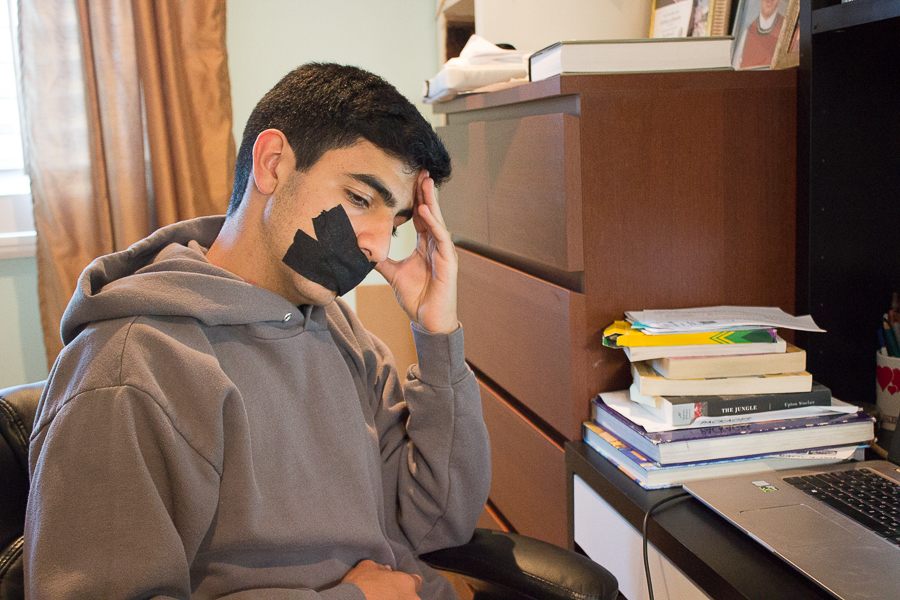
Being seen as a bigot or worse in the classroom
 Why are students afraid to voice their opinions in the classroom? Political correctness has made it almost impossible to talk about social and sensitive issues. It’s difficult to have a rational conversation about race, women’s rights or other important topics because people’s biases impede a steady dialogue.
Why are students afraid to voice their opinions in the classroom? Political correctness has made it almost impossible to talk about social and sensitive issues. It’s difficult to have a rational conversation about race, women’s rights or other important topics because people’s biases impede a steady dialogue.
Namely, students are not voicing their opinions for fear of being ridiculed — or worse. I even get the sense that if I say something that borders on controversial in class, someone will nitpick and twist my words. And when students say controversial statements, it turns into a debate about how their opinion is wrong. That’s not always the case, but it does happen.
In my university writing program class, for example, we read “Women & Power: A Manifesto” by Mary Beard, a classics professor at the University of Cambridge. The book, written in the form of two lectures, focuses on historical accounts and other contemporary examples of women’s voices being silenced by men since the beginning of Western culture. Our professor assigned a set of journal questions to facilitate the discussion — except when it was time for the class to deliberate, silence ensued. The professor asked the class, “What gives?” Finally, a student in my class eloquently stated how he felt uncomfortable talking about his thoughts because he didn’t want to say something dumb.
I felt the same way as my classmate. I tend to get quiet whenever topics like those in Beard’s book come up in class. In particular, I didn’t say anything in my UWP class because I felt that my point of view as a man would be invalid versus that of a woman.
If the topic of immigration were to come up in class, for instance, I would be on high alert to refute others if what they said was insulting. In short, I feel like an expert on immigration. I’m Mexican, I have first-hand experience on how immigration affects people’s lives and I feel comfortable discussing it. But a topic like women being silenced throughout history isn’t one of my strong points. I’d feel uncomfortable saying something inaccurate, so I’d rather not even take that risk.
People are scared to voice their opinions on hot topics for different reasons. Not wanting to sound ignorant or like a bigot, some students remain quiet. At least that way they can’t be wrong or made fun of. It’s better to say nothing than to be made a fool of in class.
Even though the classroom should be a safe space for students to actively voice their concerns and thoughts, that’s not always the case.
Chiitaanibah Johnson, a Native American student at Sacramento State University, was threatened with expulsion by a history professor after she confronted him for teaching students “on whether the word ‘genocide’ is appropriate to describe what happened to American Indians.” Johnson came back to class and presented evidence against her professor, stating that she did not like the way the professor was lecturing the class on the term “genocide” and its relation to Native Americans.
The incident highlighted several important aspects of free speech and opinion: your thoughts and words have consequence, and other people may take offense to sensitive issues. So every time I say something in class, my heart races because in my head I’m thinking, “Make sure you say what you need to say, don’t sound dumb and make sure to speak clearly.” Speaking in class shouldn’t feel like it’s a big deal, but in the moment, it does.
What needs to happen in order for effective dialogue to take place in the classroom? The most important step is calmly presenting facts, evidence and other statistics that corroborate your main points. Staying calm and collected and not letting bias get in the way of arguments is essential to producing productive discourse. It may not always be possible, but we can always attempt.
Written by: Alejandro Lara — amlara@ucdavis.edu
Disclaimer: The views and opinions expressed by individual columnists belong to the columnists alone and do not necessarily indicate the views and opinions held by The California Aggie.



